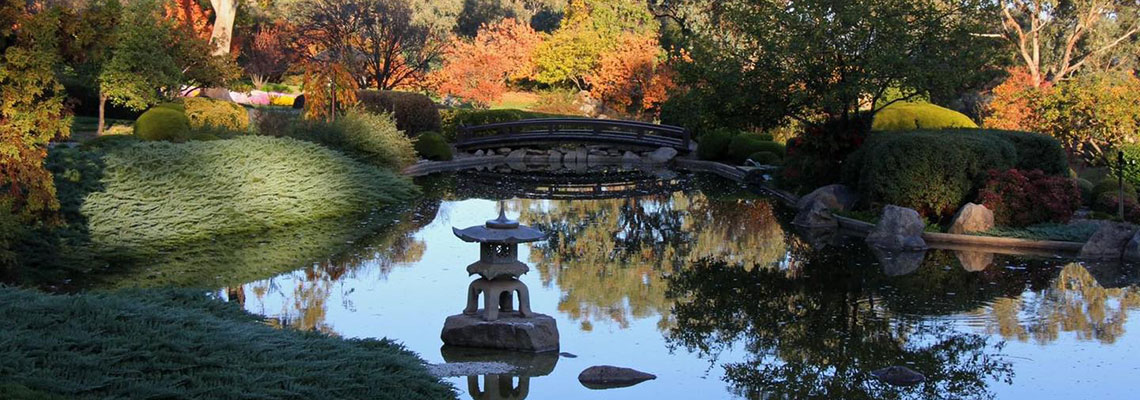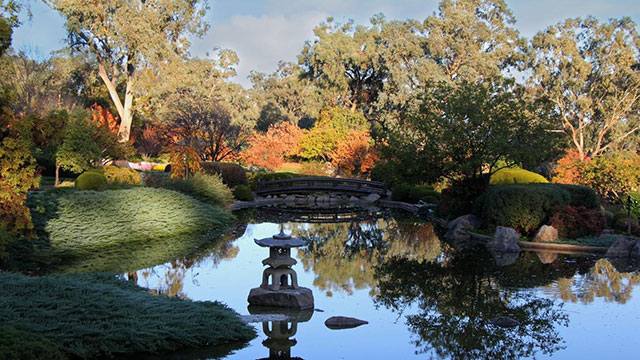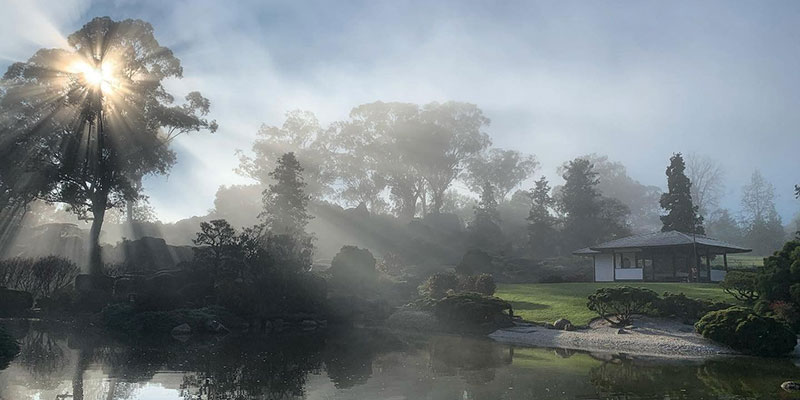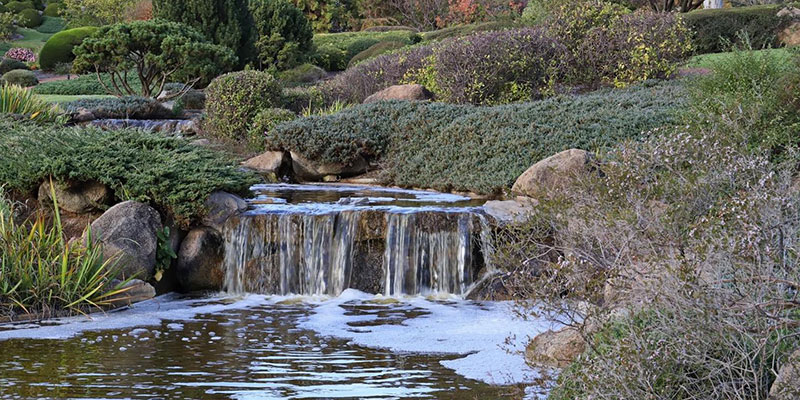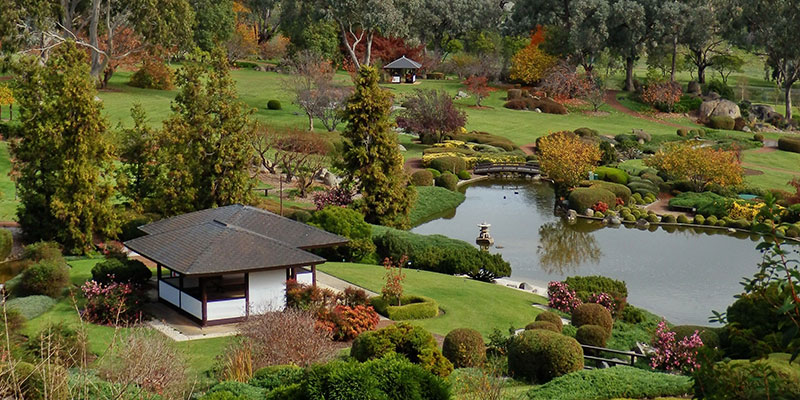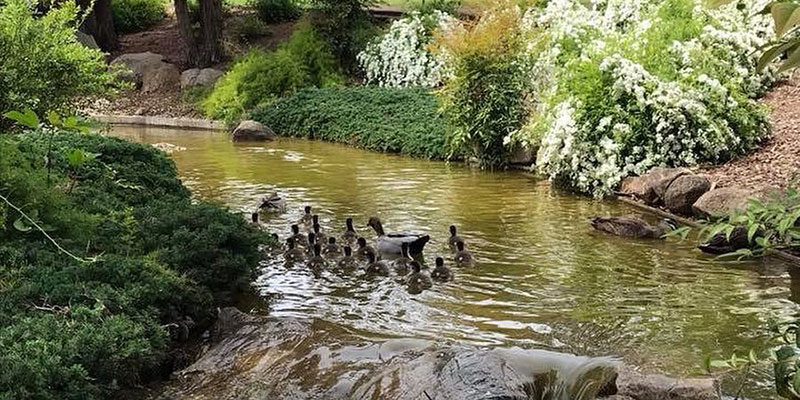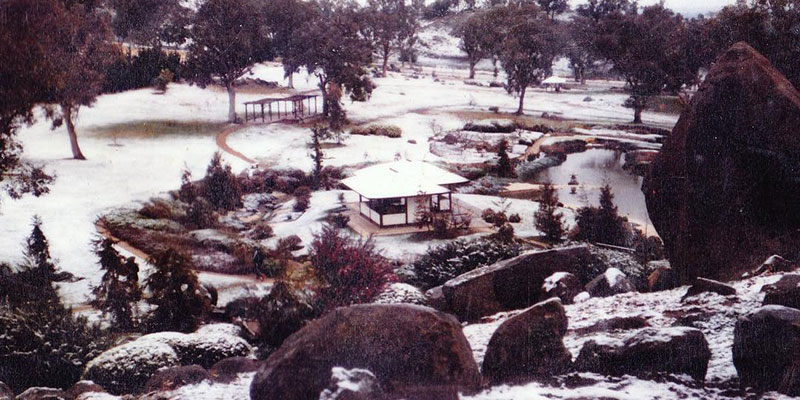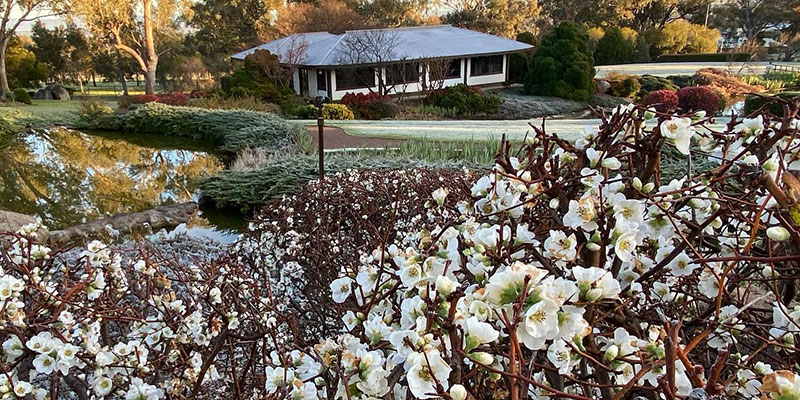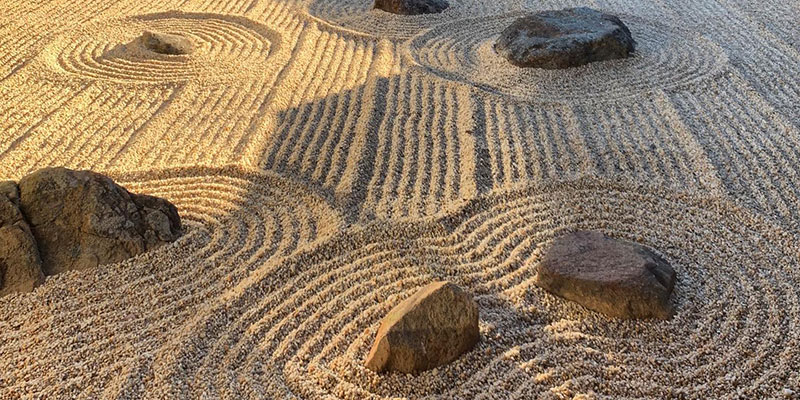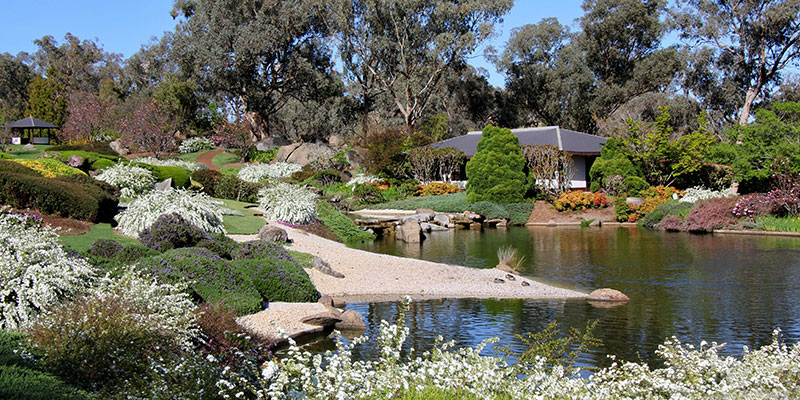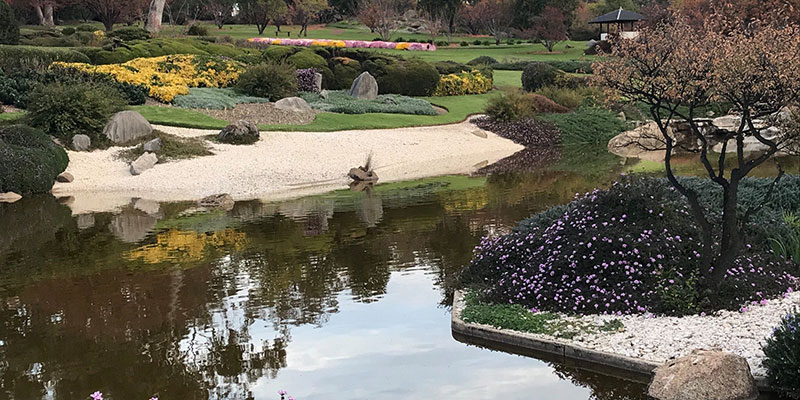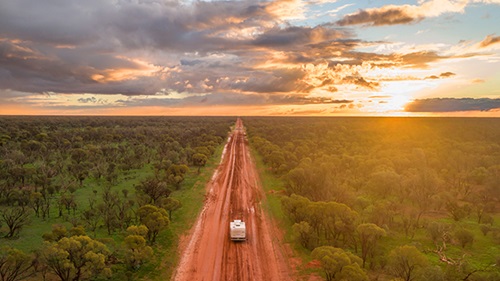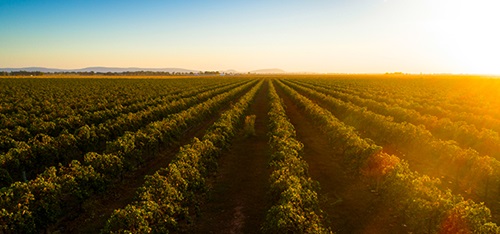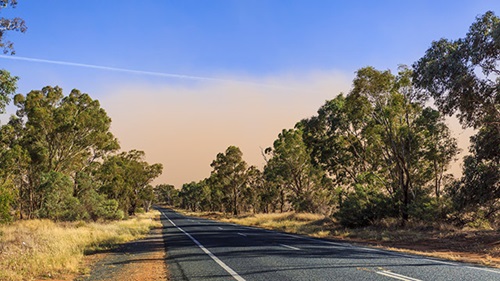Nestled on the Lachlan River in Central West, New South Wales is Cowra. A town that is known for its special relationship with Japan - surrounded by rolling hills, sheep grazing and the dusty furrows of ploughed paddocks.
The history of Cowra Japanese Garden and Cultural Centre
The garden was designed in 1976 as a symbol of the historical links between Japan and the people of Cowra. Located near the site of a World War Two Japanese prisoner of war camp, and the infamous Cowra break out in 1944 – the garden is a tangible monument to peace and reconciliation between two countries.
Designed by Japanese garden architect Ken Nakajima, it represents a horticultural map of Japan, and each feature depicts symbolically a different part of the landscape. The rocks symbolise mountains; hedges the rolling hills; running water and ponds represent rivers, streams and oceans. The garden has more than 113 different plant species, but a feature is a grove of native gums representing four Australian soldiers who also tragically died in the breakout.
The Cowra Japanese Garden and Cultural Centre is operated by a not-for-profit community company with a volunteer board, on Crown land leased through council at a nominal rent.







